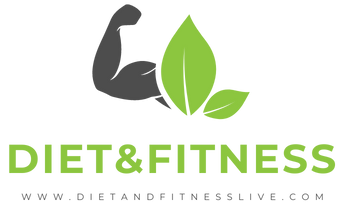
- Importance of a Diet Planner
- How to Create a Diet Plan
- Tips for Sticking to Your Diet Plan
- Common Mistakes to Avoid
- The Benefits of a Balanced Diet
- – Increased energy levels
- – Improved digestion
- – Better sleep
- – Reduced risk of heart disease, diabetes, and other chronic illnesses
- Tracking Your Macros
- Meal Prep Tips
- – Plan your meals in advance
- – Cook in bulk
- – Use a variety of spices and seasonings to keep things interesting
- The Role of Exercise in Your Diet Plan
- Supplements to Consider
- – Multivitamins
- – Protein powder
- – Omega-3 fatty acids
- Conclusion
Importance of a Diet Planner
A diet planner is an essential tool for anyone looking to maintain a healthy and balanced diet. It helps you stay on track with your goals and ensures that you are getting all the necessary nutrients your body needs. Without a diet planner, it’s easy to fall into bad eating habits, which can lead to weight gain, health problems, and a host of other issues. By using a diet planner, you can take control of your diet and make sure that you are eating the right foods in the right amounts.
How to Create a Diet Plan
Creating a diet plan can be a daunting task, but it doesn’t have to be. The first step is to determine your goals and what you want to achieve. Do you want to lose weight, build muscle, or just maintain your current weight? Once you have your goals in mind, you can start to create a plan that works for you. This may involve consulting with a nutritionist or using online resources to help you determine the right foods and portions for your body.
Tips for Sticking to Your Diet Plan
Creating a diet plan is only half the battle. The real challenge is sticking to it. Here are some tips to help you stay on track:
- Plan your meals in advance: This will help you avoid the temptation to grab unhealthy snacks or fast food when you’re hungry.
- Keep healthy snacks on hand: When hunger strikes, it’s easy to reach for junk food. Keep healthy snacks like fruit, nuts, or carrots on hand to satisfy your cravings.
- Don’t deprive yourself: It’s okay to indulge in your favorite foods every once in a while. Just make sure to do so in moderation.
Common Mistakes to Avoid
When creating a diet plan, there are some common mistakes that people make. These include:
- Setting unrealistic goals: If you set goals that are too lofty, you are setting yourself up for failure.
- Eliminating entire food groups: Unless you have a medical reason to avoid certain foods, it’s important to include a variety of foods in your diet.
- Not tracking your progress: Without tracking your progress, it’s difficult to know if your diet plan is working. Make sure to weigh yourself regularly and keep track of what you’re eating.
The Benefits of a Balanced Diet
A balanced diet is essential for maintaining good health. It provides your body with the nutrients it needs to function properly, helps you maintain a healthy weight, and reduces your risk of chronic diseases. Some of the benefits of a balanced diet include:
– Increased energy levels
– Improved digestion
– Better sleep
– Reduced risk of heart disease, diabetes, and other chronic illnesses
Tracking Your Macros
Macros, or macronutrients, are the building blocks of your diet. They include protein, carbohydrates, and fat. Tracking your macros can help you ensure that you are getting the right balance of nutrients for your body. There are many apps and online resources available that can help you track your macros and stay on track with your diet plan.
Meal Prep Tips
Meal prep is an essential part of sticking to your diet plan. By preparing your meals in advance, you can ensure that you have healthy options on hand and avoid the temptation to grab fast food or unhealthy snacks. Here are some meal prep tips to help you get started:
– Plan your meals in advance
– Cook in bulk
– Use a variety of spices and seasonings to keep things interesting
The Role of Exercise in Your Diet Plan
Exercise is an important part of any diet plan. Not only does it help you burn calories, but it also helps you build muscle and improve your overall health. When creating your diet plan, it’s important to include exercise as well. This may involve incorporating strength training, cardio, or other types of physical activity into your routine.
Supplements to Consider
While a balanced diet should provide you with all the nutrients you need, there are some supplements that can help fill in any gaps. These may include:
– Multivitamins
– Protein powder
– Omega-3 fatty acids
It’s important to talk to your doctor before starting any new supplements to ensure that they are safe for you.
Conclusion
Creating a diet plan can be a challenge, but it’s essential for maintaining good health. By using a diet planner, tracking your progress, and incorporating exercise and healthy eating habits into your routine, you can achieve your goals and feel your best. Remember to be patient with yourself and make adjustments as needed to ensure that your diet plan is sustainable and effective.






